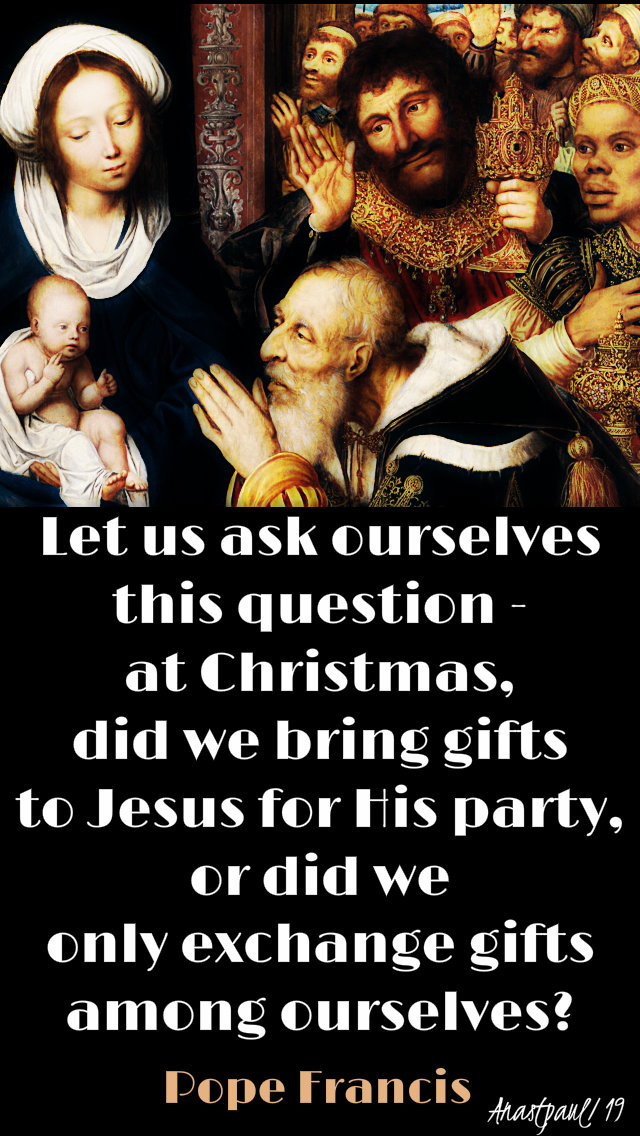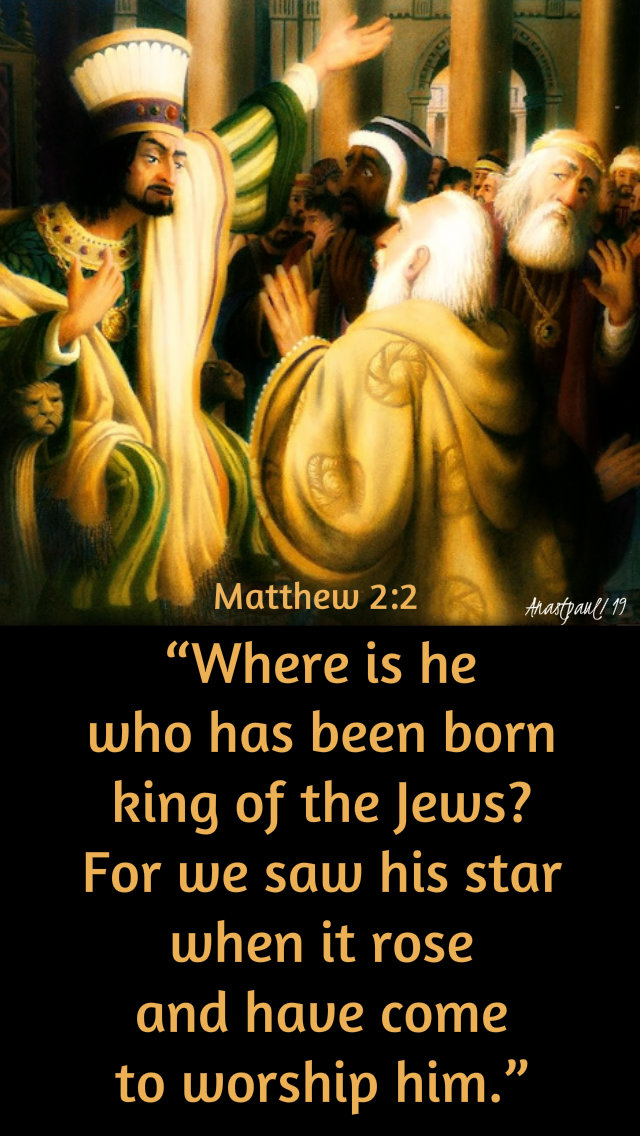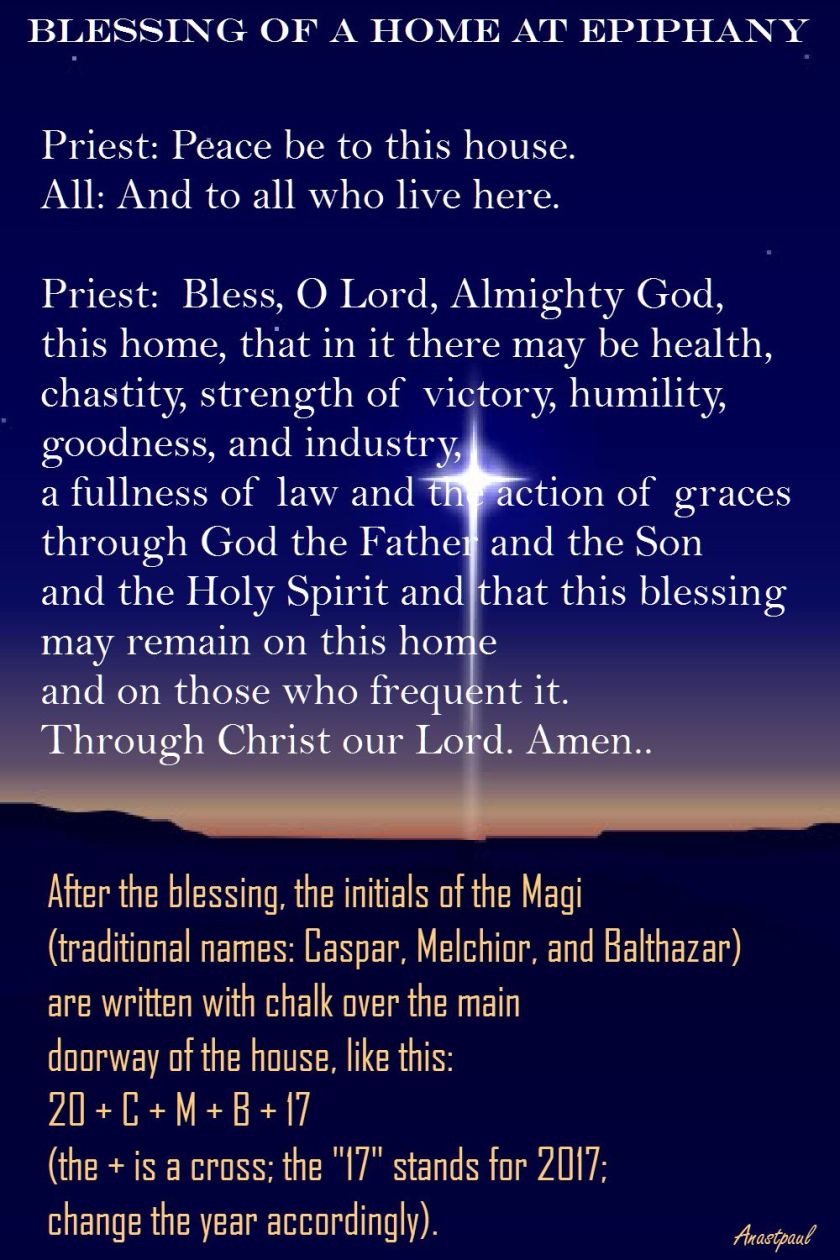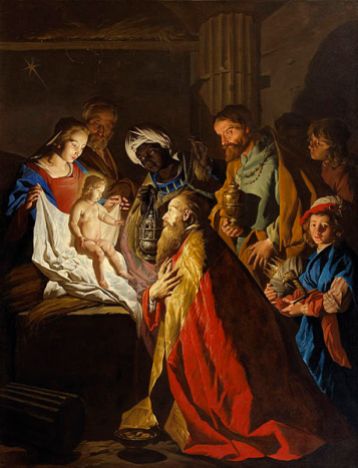Thought for the Day – 9 January – 3rd Day after Epiphany
Excerpt from Pope Francis’ Homily for the Solemnity of the Epiphany of the Lord, celebrated 6 January 2019, in St Peter’s Basilica
“In order to find Jesus, we also need to take a different route, to follow a different path, His path, the path of humble love. And we have to persevere. Today’s Gospel ends by saying that the Magi, after encountering Jesus, “left for their own country by another road” (Mt 2:12). Another road, different from that of Herod. An alternative route than that of the world, like the road taken by those who surround Jesus at Christmas – Mary and Joseph, the shepherds. Like the Magi, they left home and became pilgrims on the paths of God. For only those, who leave behind their worldly attachments and undertake a journey, find the mystery of God.
This holds true for us too. It is not enough to know where Jesus was born, as the scribes did if we do not go there. It is not enough to know that Jesus was born, like Herod, if we do not encounter Him. When His place becomes our place, when His time becomes our time, when His person becomes our life, then the prophecies come to fulfilment in us. Then Jesus is born within us. He becomes the living God for me. Today we are asked to imitate the Magi. They do not debate – they set out. They do not stop to look but enter the house of Jesus. They do not put themselves at the centre but bow down before the One who is the centre. They do not remain glued to their plans but are prepared to take other routes. Their actions reveal a close contact with the Lord, a radical openness to Him, a total engagement with Him. With Him, they use the language of love, the same language that Jesus, though an infant, already speaks. Indeed, the Magi go to the Lord not to receive but to give. Let us ask ourselves this question – at Christmas did we bring gifts to Jesus for His party, or did we only exchange gifts among ourselves?

If we went to the Lord empty-handed, today we can remedy that. The Gospel, in some sense, gives us a little “gift list”: gold, frankincense and myrrh. Gold, the most precious of metals, reminds us God has to be granted first place – He has to be worshipped. But to do that, we need to remove ourselves from the first place and to recognise our neediness, the fact that we are not self-sufficient. Then there is frankincense, which symbolises a relationship with the Lord, prayer, which like incense rises up to God (cf. Ps 141:2). Just as incense must burn in order to yield its fragrance, so too, in prayer, we need to “burn” a little of our time, to spend it with the Lord. Not just in words but also by our actions. We see this in the myrrh, the ointment that would be lovingly used to wrap the body of Jesus taken down from the cross (cf. Jn 19:39). The Lord is pleased when we care for bodies racked by suffering, the flesh of the vulnerable, of those left behind, of those who can only receive without being able to give anything material in return. Precious in the eyes of God is mercy shown to those who have nothing to give back. Gratuitousness!
In this Christmas season now drawing to its close, let us not miss the opportunity to offer a precious gift to our King, who came to us not in worldly pomp but in the luminous poverty of Bethlehem. If we can do this, His light will shine upon us.”






































You must be logged in to post a comment.